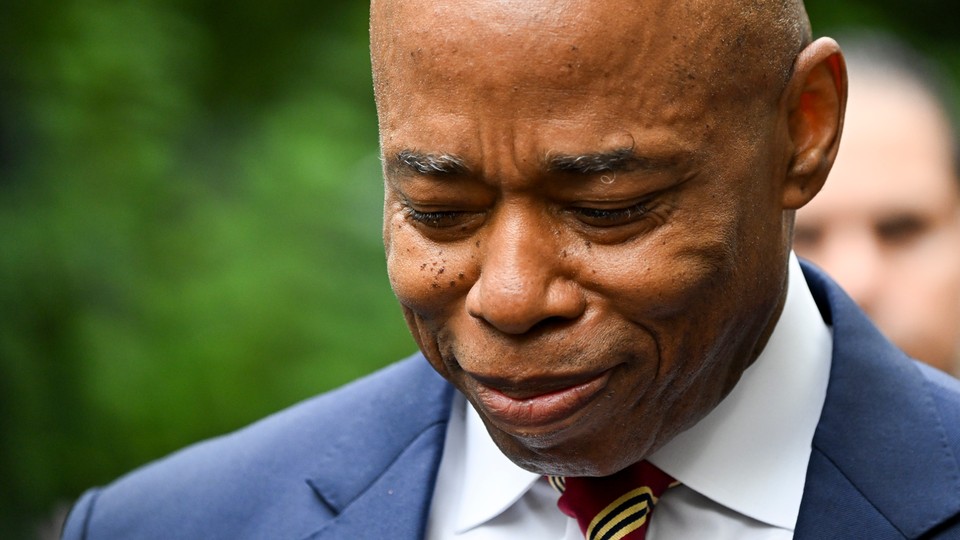
Eric Adams is the latest public figure to frame accusations of wrongdoing as a targeted attack.

This is an edition of The Atlantic Daily, a newsletter that guides you through the biggest stories of the day, helps you discover new ideas, and recommends the best in culture. Sign up for it here.
Earlier today, Mayor Eric Adams pleaded not guilty to the five federal counts unveiled this week in a damning 57-page indictment that alleges that he engaged in a quid pro quo corruption scheme with Turkish nationals, among other campaign-funding violations.
At a press conference yesterday in front of Gracie Mansion, the official mayoral residence on the Upper East Side of Manhattan, Adams cycled through some standard denials, telling reporters that “everyone who knows me knows that I follow the campaign rules and I follow the law.” But he has also struck a defiant tone, referring to the “demonizing” he has supposedly dealt with over the past 10 months, since investigations into his 2021 election campaign became public and scandals started to engulf his administration. “I always knew that if I stood my ground for all of you that I would be a target—and a target I became,” he said in a video statement to New Yorkers on Wednesday evening, before his indictment was announced. “I will fight these injustices with every ounce of my strength and my spirit … If I am charged, I know I am innocent.”
Adams, of course, is innocent until proven guilty in a court of law. But his claims of innocence seem to hinge on his stance that he is the victim of a targeted attack—a narrative that fits into what my colleague David Graham calls “a trend of growing shamelessness” among American politicians accused of wrongdoing. There was once a time when “a major scandal was a career ender” for an elected official, David, who covers politics, told me, but in recent decades, notable politicians have refused to step down, some of them “remaining defiant and insisting they’re victims.” In the 1990s, David reminded me, Bill Clinton apologized for having an affair, but he didn’t resign—and he accused Republicans of targeting him.